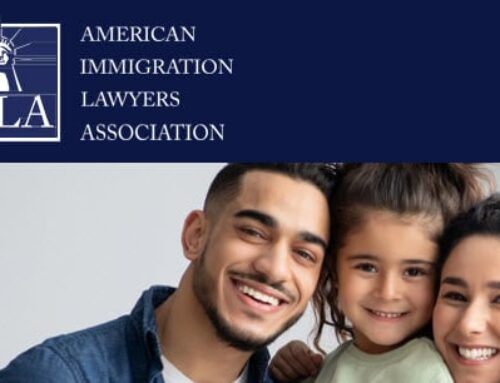USCIS Update
June 15, 2023
As of June 13, 2023, U.S. Citizenship and Immigration Services (USCIS) will now offer premium processing for individuals seeking to change their status to F-1, F-2, M-1, M-2, J-1, or J-2 nonimmigrant status, as well as their dependents.
There are instances where foreign nationals enter the U.S. as or in another temporary visa status and subsequently to decide to enroll in a university or college as an F-1 or M-1 student, or to participate in a J-1 Exchange Visitor program. To do this, the foreign national must file Form I-539 to change status to that of an F-1 or M-1 vocational student or J-1 Exchange visitor. Unfortunately, with exceedingly long delays at the Service Centers, processing times are taking from five months to 13 and a half months, for approval. These long waiting times have delayed or, in some cases, prevented individuals from entering into the educational or work opportunity sought.
The expansion of premium processing for these categories will occur in phases. Starting June 13, 2023, USCIS will accept premium processing requests (Form I-907, filed via paper form or online) for applicants seeking a change of status to F-1, F-2, M-1, M-2, J-1, or J-2 status, who have a pending Form I-539. Beginning June 26, USCIS will accept premium processing requests (Form I-907, filed via paper form or online) for applicants seeking a change of status to F-1, F-2, M-1, M-2, J-1, or J-2 status, when filed together with Form I-539. Requests for premium processing (Form I-907) and I-539 applications may be filed in paper format, or online. A USCIS account must be created to file online.
Any premium processing requests to change of status to F-1, F-2, M-1, M-2, J-1, or J-2 status, for a pending Form I-539 made before June 13 will be rejected. Similarly, any premium processing requests to change of status to F-1, F-2, M-1, M-2, J-1, or J-2 status, filed together with Form I-539 made before June 26 will be rejected.
Keep in mind that all applicants included on Form I-539 must submit their biometrics before premium processing can begin. The time limit for premium processing will not start until all applicants included on the Form I-539 submit their biometrics for these specific categories, even if an applicant’s Form I-907 and accompanying fees were accepted by USCIS.
With the introduction of Premium processing, I-539 applications will finally be eligible for expedited processing that has been available for other applications. Premium processing is already in place with pending I-539 applications and will soon be in place for new applications. Premium processing will not be available for I-539 applications filed by individuals who are already in these statuses and are seeking extensions of stay.
The processing time for Form I-539 applications will be 30 calendar days “once all prerequisites, including receipt of biometrics, have been met.” It generally takes a few weeks for an applicant to be notified of the biometrics appointment and to complete biometrics processing, and the 30-day clock won’t start running until that is complete.
In addition to the I-539 application fee (currently $370) and the biometrics fee of $85, the premium processing filing fee is $1,750, less than the $2,500 generally required for other filings.
Specifics of I-539 premium processing
The new premium processing applies to individuals who have filed or will be filing a Form I-539 to seek a change of status to F-1, F-2, M-1, M-2, J-1, or J-2.
Here is the timetable for pending and new applications:
- June 13: The USCIS began accepting premium processing requests from applicants with pending I-539 applications.
- June 26: The USCIS will begin accepting premium processing requests that are filed at the same time as the applicant’s Form I-539.
Conclusion
This continued expansion of premium processing is a great benefit to applicants and their employers, intended universities, colleges, or J-1 programs.
USCIS is working step-by-step to address the backlogs and processing-time issues.
This alert is for informational purposes only. If you have any questions, please contact us via email at info@poonahimmigrationlaw.com for further information.




